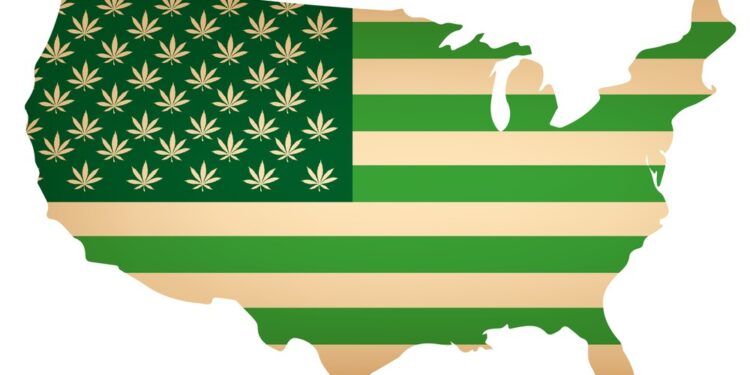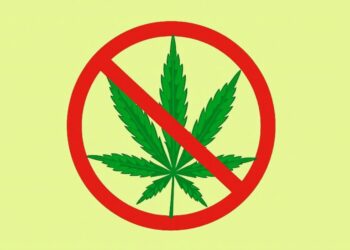In a recent analysis conducted by the Pew Research Center, it has been revealed that despite marijuana remaining illegal under federal law, an increasing number of Americans reside in states where its recreational use is permitted. The findings underscore a significant shift in public attitudes towards cannabis legalization, with 54% of the population now living in states where recreational marijuana is legal.
Moreover, the analysis delved deeper into the landscape of marijuana regulation in the United States. It found that a staggering 74% of Americans live in states that have legalized marijuana for either medical or recreational purposes. Further, a substantial 79% of Americans reside in counties boasting at least one marijuana dispensary.
The data also sheds light on the proliferation of cannabis dispensaries across the nation, with nearly 15,000 establishments operating in the U.S. California emerges as a frontrunner in this regard, boasting 3,659 dispensaries, more than double the number found in any other state.
A notable statistic reveals that one-quarter of all marijuana dispensaries in the country are concentrated in California, with an overwhelming 99.5% of Californians having access to at least one dispensary in their county. In fact, Los Angeles County alone boasts 1,481 dispensaries, surpassing all states except California.
Meanwhile, Oklahoma has gained distinction for hosting the highest number of medical marijuana dispensaries per capita, with an impressive 36 shops for every 100,000 residents.
The analysis also uncovered an intriguing trend regarding the geographical distribution of dispensaries. Approximately one in five dispensaries are situated within 20 miles of a state border, with many bordering states with more restrictive marijuana laws. This phenomenon is exemplified in states like Indiana, Kansas, and Texas, where individuals can find over 100 dispensaries within 20 miles of the state border despite stringent local regulations.
Contrary to initial concerns, the analysis suggests that the presence of dispensaries may not necessarily correlate with low-income neighborhoods. States like Colorado, Connecticut, Maryland, and Virginia, where marijuana is legalized, exhibit median incomes at least $20,000 lower in areas with high concentrations of dispensaries compared to areas with fewer dispensaries. Conversely, in states like New York and New Hampshire, median household incomes are significantly higher in areas with numerous dispensaries.
Overall, the Pew Research analysis underscores the complex and evolving landscape of marijuana legalization in America, reflecting shifting attitudes and socio-economic dynamics across different regions of the country.
Read the whole article from the Hill here.













